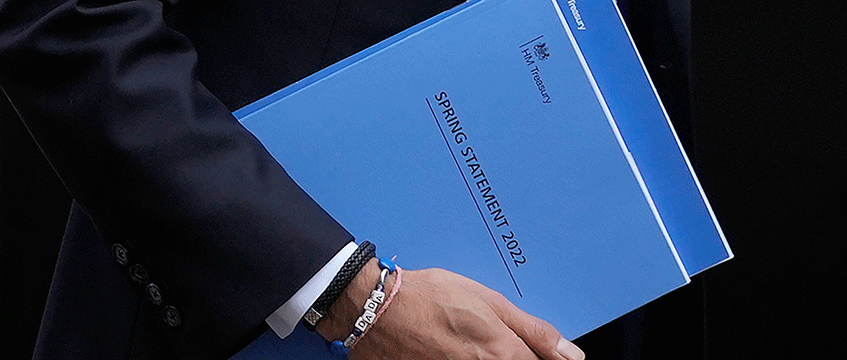COMMENT This was Schrodinger’s Spring Statement. Taxes went up but they also went down. Fuel duty was cut but its revenues rose. These paradoxes were all possible courtesy of a new-found magic money tree – inflation. It’s been lying dormant in the ground for 40 years. But those of us old enough to remember inflation know that, left unchecked, most of its magic is black.
But for now, sheltering under it, the chancellor could increase the NIC threshold knowing that wage and price rises, and his own previous tax uplifts, would still push the UK tax take to its highest level since the 1940s. And that the one-year 5% cut in fuel duty (though it is welcome and will help) will be more than offset by revenues from rising petrol prices.
The Office for Budget Responsibility says energy bills are set to rise by 40% in October. Rishi Sunak is holding back a big surplus because he will need it to do more to help then and, as he signalled, potentially to use as a pre-election tax cut. For those expecting dramatic interventions, such as big spending to help those on benefits, this statement was the cat that didn’t meow.
Horsemen of the apocalypse
The chancellor’s supporters would argue that he had no room for manoeuvre, like a limo in a bike rack. After all, the country has only just emerged from the two years that the virus ate (which came straight after the four years Brexit groundhogged). At MIPIM in 2017, a Yemeni client said: ”I’d give anything for a problem like Brexit. Real problems for a country are war and want.”
During the pandemic, Sunak rightly spent £70bn on the furlough scheme to save the country from a universal Covid collapse. The economy was just beginning to recover, and now it has been struck by the biggest commodity price surge since the oil shock of 1973/4. Terry Pratchett said there were originally five horsemen of the apocalypse, but one left before the band became famous. So far, 2022 has felt like their reunion year.
Which is why a big part of Sunak’s job this week was to put on a confident show. So there was some flash and bang for the backbenchers and the base, but there were also some significant moves to help with the energy crisis and the long-term sustainability of buildings. Sunak cut VAT from 5% to zero for five years for homeowners installing solar panels, heat pumps and insulation. This is a move in the right direction, but the British Property Federation is right to call for the zero rating of all home improvement work. Residential property is one of the chief engines of global warming. The government needs to invest heavily to help turn that engine off. The only way to save the planet is one home at a time.
The chancellor also brought forward by a year the planned targeted business rates exemption for plant and machinery used in on-site renewable energy generation and storage. It will kick in this April (instead of April 2023) and run until March 2035. This initiative is hugely welcome and needs to be the first of many. Investing in the green energy transition has always been the right thing to do, but since 4am Russian time on 24 February this year it has also become a matter of vital national security.
Hostages to history
This was a holding statement but full of political and policy messaging. It signalled again the chancellor’s core free-market beliefs to which he yearns to return: tax and cost cutting, deficit reduction and tight spending control.
It may not be easy to imagine Margaret Thatcher in a designer hoodie or wearing white socks and sliders, but her spiritual (if not sartorial) successor is ensconced at No.11.
But chancellors, like all of us, are ultimately the hostages of history. The unfolding global crisis may force Sunak to spend heavily again in the autumn, whatever his deeper political instincts.
Bruce Dear is chair-elect and Paul Beausang is head of real estate tax at Eversheds Sutherland











